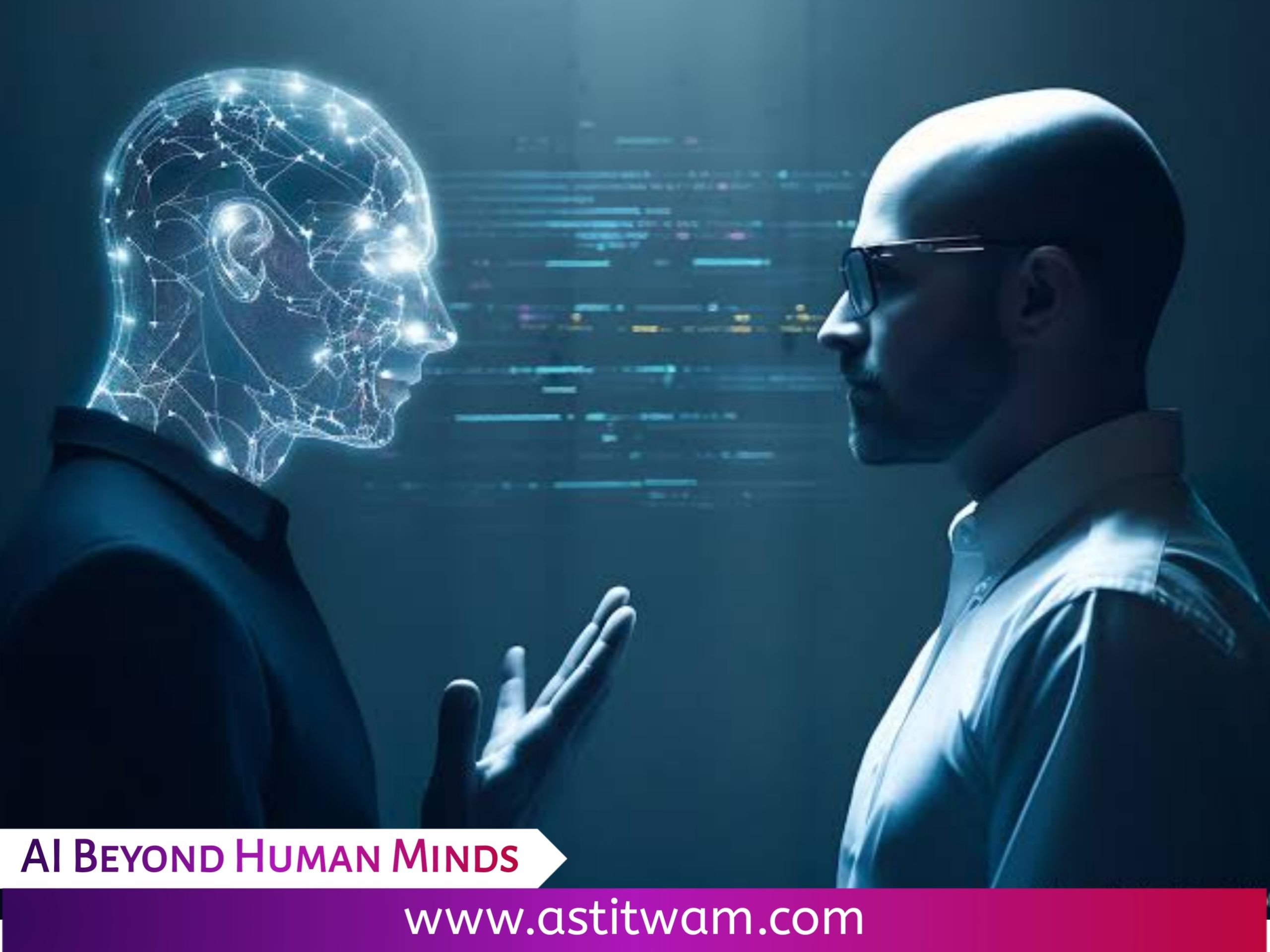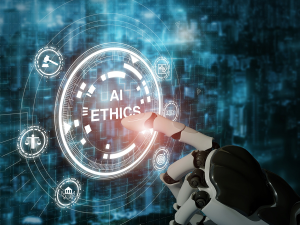Beyond Human Minds: AI’s Role in Pushing Technological Boundaries

Table of Contents
Introduction
In the ever-evolving landscape of technology, one concept stands out as a beacon of innovation: Artificial Intelligence (AI). With its ability to mimic human cognition and decision-making, AI has transcended its role as a mere tool. It has become a driving force that is propelling the boundaries of technology far beyond what was once considered possible.
The Genesis of AI
From Sci-Fi Dreams to Reality
Human fascination with artificial beings and intelligent machines dates back to ancient mythology and science fiction literature. However, the real breakthrough came in the mid-20th century with the inception of modern computing. Visionaries like Alan Turing laid the groundwork for AI, sparking the idea of machines that could simulate human intelligence.
AI’s Impact on Industries

Revolutionizing Healthcare
AI’s foray into healthcare has been nothing short of revolutionary. From diagnostic assistance to drug discovery, AI algorithms have accelerated medical advancements, enhancing accuracy and speeding up processes that once took years.
Transforming Manufacturing
In the realm of manufacturing, AI-driven automation has ushered in a new era of efficiency. Robots equipped with AI capabilities have streamlined production lines, reduced errors, and optimized resource allocation.
The Cognitive Leap
Machine Learning and Beyond
Machine Learning (ML), a subset of AI, has led to profound breakthroughs. The ability of machines to learn from data and improve their performance over time has given rise to applications like natural language processing, image recognition, and self-driving cars.
Deep Learning’s Role
Deep Learning, a specialized branch of ML, has demonstrated exceptional capabilities in processing vast amounts of data. Its neural networks have achieved superhuman performance in tasks like language translation and image generation.
AI Ethics and Challenges

The Black Box Conundrum
As AI systems become more complex, their decision-making processes often become inscrutable. The “black box” nature of certain AI algorithms raises ethical concerns, particularly in sectors like healthcare and finance where transparency is crucial.
Bias and Fairness
AI’s algorithms are only as impartial as the data they’re trained on. Biases present in training data can lead to discriminatory outcomes, highlighting the need for continuous monitoring and ethical AI development.
The Future Landscape
AI-Augmented Creativity
AI is no longer limited to number crunching; it’s delving into the realm of creativity. AI-generated art, music, and literature challenge the boundaries of human ingenuity, raising questions about the nature of creativity itself.
Human-AI Symbiosis
The future envisions a harmonious coexistence between humans and AI, where each complements the other’s strengths. AI could amplify human cognitive abilities, resulting in an era of unprecedented problem-solving and innovation.
Conclusion
As we stand at the crossroads of human ingenuity and artificial intelligence, the boundaries of technology continue to expand. AI’s role in pushing these boundaries is nothing short of transformative, revolutionizing industries, enhancing our cognitive capacities, and reshaping the very essence of creativity. The journey beyond human minds has just begun, and the possibilities are boundless.
FAQs (Frequently Asked Questions)
- What is the core principle behind AI’s functionality?
AI’s core principle revolves around the concept of simulating human intelligence through algorithms and data processing. - Is there a limit to AI’s potential?
AI’s potential is continually expanding as technology evolves, making it difficult to predict any concrete limits. - How can AI be integrated into everyday life?
AI is already present in various aspects of daily life, from virtual assistants to personalized recommendations in entertainment and shopping. - What measures are in place to address AI’s ethical concerns?
Researchers and policymakers are actively working on guidelines and regulations to ensure responsible AI development and usage. - Will AI replace human jobs entirely?
While AI might automate certain tasks, the consensus is that it will augment human abilities rather than replace humans outright.




